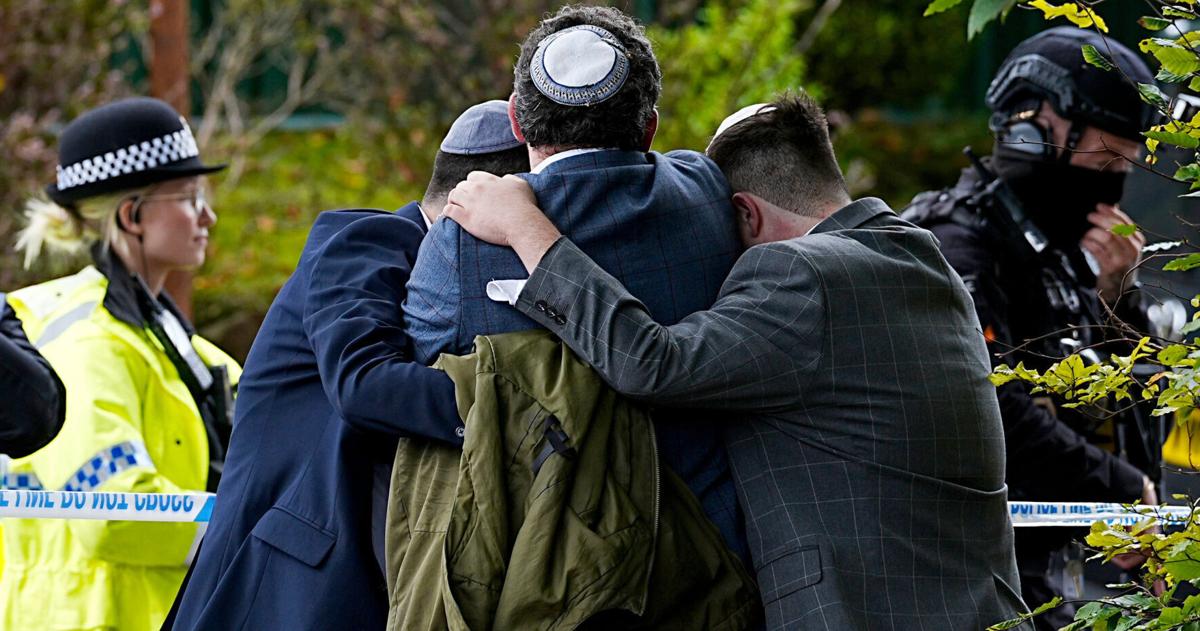
News
October 20, 2025
Fear and vigilance rise as attacks on houses of worship intensify worldwide
A key question lingers: Can believers feel safe — and at peace — continuing to worship together?
**Fear and vigilance rise as attacks on houses of worship intensify worldwide**
A shadow of fear is spreading across the globe as attacks targeting houses of worship are becoming increasingly frequent. From synagogues and mosques to churches and temples, sacred spaces meant for peace and reflection are now sites of violence, leaving communities shaken and questioning their safety. The escalating trend raises a critical concern: can people of faith continue to gather and worship together without fear of becoming targets?
The recent surge in attacks has sparked widespread condemnation from religious leaders and governments alike, with many calling for increased security measures and a renewed commitment to interfaith dialogue. However, the sense of vulnerability persists, particularly among minority religious groups who often feel disproportionately affected by these acts of violence.
Beyond the immediate physical damage and tragic loss of life, these attacks inflict a deeper wound on communities. They erode trust, sow division, and threaten the very fabric of religious freedom. The psychological impact can be devastating, leaving worshippers hesitant to attend services and creating a climate of fear that extends far beyond the walls of the affected buildings.
The motives behind these attacks are varied and complex, ranging from religious extremism and hate crimes to politically motivated violence. Regardless of the cause, the consequences are the same: a violation of the fundamental right to religious expression and a disruption of communal harmony.
Many faith communities are responding to the growing threat by implementing enhanced security measures, such as installing surveillance cameras, hiring security personnel, and conducting safety training for members. However, these measures can only go so far in addressing the root causes of the problem.
Ultimately, addressing the rise in attacks on houses of worship requires a multi-faceted approach that includes strengthening law enforcement efforts, promoting interfaith understanding, combating hate speech and extremism online, and fostering a culture of tolerance and respect for religious diversity. The ability for believers to feel safe and at peace while practicing their faith is a cornerstone of a free and just society, and its preservation demands urgent attention and collective action. The question remains: how can communities worldwide ensure that houses of worship once again become sanctuaries of peace and security for all?
A shadow of fear is spreading across the globe as attacks targeting houses of worship are becoming increasingly frequent. From synagogues and mosques to churches and temples, sacred spaces meant for peace and reflection are now sites of violence, leaving communities shaken and questioning their safety. The escalating trend raises a critical concern: can people of faith continue to gather and worship together without fear of becoming targets?
The recent surge in attacks has sparked widespread condemnation from religious leaders and governments alike, with many calling for increased security measures and a renewed commitment to interfaith dialogue. However, the sense of vulnerability persists, particularly among minority religious groups who often feel disproportionately affected by these acts of violence.
Beyond the immediate physical damage and tragic loss of life, these attacks inflict a deeper wound on communities. They erode trust, sow division, and threaten the very fabric of religious freedom. The psychological impact can be devastating, leaving worshippers hesitant to attend services and creating a climate of fear that extends far beyond the walls of the affected buildings.
The motives behind these attacks are varied and complex, ranging from religious extremism and hate crimes to politically motivated violence. Regardless of the cause, the consequences are the same: a violation of the fundamental right to religious expression and a disruption of communal harmony.
Many faith communities are responding to the growing threat by implementing enhanced security measures, such as installing surveillance cameras, hiring security personnel, and conducting safety training for members. However, these measures can only go so far in addressing the root causes of the problem.
Ultimately, addressing the rise in attacks on houses of worship requires a multi-faceted approach that includes strengthening law enforcement efforts, promoting interfaith understanding, combating hate speech and extremism online, and fostering a culture of tolerance and respect for religious diversity. The ability for believers to feel safe and at peace while practicing their faith is a cornerstone of a free and just society, and its preservation demands urgent attention and collective action. The question remains: how can communities worldwide ensure that houses of worship once again become sanctuaries of peace and security for all?
Category:
Politics